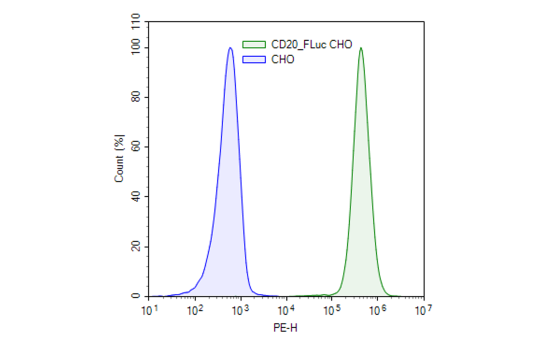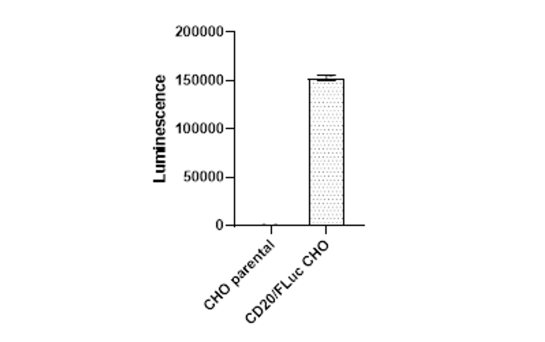CD20/Firefly Luciferase CHO Cell Line
Recombinant clonal stable CHO-K1 cell line constitutively expressing both the full length human CD20 protein, also known as MS4A1 (Genbank #NM_152866), and the firefly (Photinus pyralis) luciferase. Surface expression of CD20 was confirmed by flow cytometry.
Purchase of this cell line is for research purposes only; commercial use requires a separate license. View the full terms and conditions.
| Name | Ordering Information |
| Thaw Medium 3 | BPS Bioscience #60186 |
| Growth Medium 3A | BPS Bioscience #60188 |
The cell line has been screened to confirm the absence of Mycoplasma species.
CD20 (MS4A1) is a glycosylated phosphoprotein expressed on the cell surface of B cells. CD20 is a highly attractive target antigen for immunotherapy because it is highly expressed in more than 90% of patients with B-cell lymphoma. First approved in 1997, Rituximab (Rituxan) is a chimeric monoclonal antibody targeting CD20 and has been classified by the World Health Organization as an “Essential Medicine”. Since then, additional monoclonal antibodies against CD20 have been approved or are being tested in clinical trials for the treatment of multiple sclerosis (MS), chronic lymphocytic leukemia (CLL), follicular lymphoma, diffuse large B cell lymphoma (DLBCL), rheumatoid arthritis, non-Hodgkin’s lymphoma, systemic lupus erythematosus, and myalgic encephalomyelitis (chronic fatigue syndrome). More recently, anti-CD20-CD19 bispecific CAR-T cells have been developed to address concerns over potential relapse.



